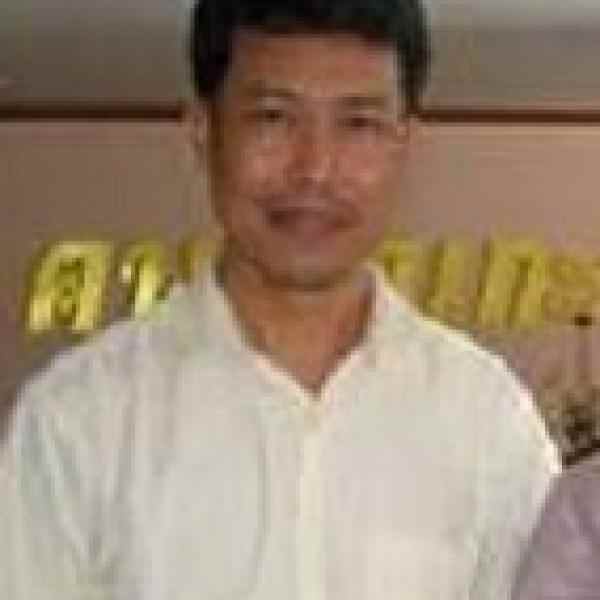Introduction
Peem Pakamaethawee is establishing Thailand's first natural farms designed to show that natural farming is a better alternative than chemical-based farming.
L'idée nouvelle
A natural farming system -- no weeding, no chemical fertilizers, no pesticides, and no plowing -- allows farmers to produce high yields without using the chemicals that are dangerous to their health and the environment. Peem is providing Thai farmers with the practical, locally adapted knowledge needed to undertake natural farming in their rice paddies and on other agricultural lands. Peem feels that successfully demonstrated solutions to natural farming difficulties along with high yield crops will do more to convince farmers to undertake natural farming than hundreds of imported technical manuals and case studies. His research and training center collects plant "breeds," develops breed preservation techniques, experiments with various types of intercropping, and distributes natural and appropriate pesticides. Further, he has inspired four local agricultural groups in the region to establish similar demonstration and experimentation centers. The resulting coalition will enable these groups to share experiences and strategies. As his experiment progresses, he will share his successes across Thailand via written manuals. Furthermore, the coalition he has built will push for changes within the national agricultural policy. In the end, he hopes to persuade the government to encourage and promote non-chemical farming methods in place of, or at least in addition to, chemical methods.
Le problème
Thirty-seven million households in Thailand survive on farming, mainly through rice production. Although Thailand is one of the largest exporters of rice, farmers remain among the poorest members of Thai society. Part of the difficulty lies in the government's primary emphasis on agricultural industrialization rather than on traditional, small-scale rice production.
The agricultural technology encouraged by the government is designed for large-scale farms and relies heavily upon chemical fertilizers and pesticides. Not only have these chemicals been damaging the health of the farmers, but they have proven unsustainable and environmentally destructive. Chemical fertilizers and pesticides have drained the land of much of its fertility and are one of the main causes of the polluted state of Thailand's rivers and lakes. The pollution, in turn, has seriously depressed fish yields.
La stratégie
In 1987, Peem studied the methods of a Japanese farmer who dedicated his life to natural farming. Since then, Peem has been experimenting with its practical application on his own small plot of land. He has now extended this to a larger demonstration farm area where he is experimenting with intercropping a variety of plants, several organic pesticides, and a seed bank adapted to natural farming. He and his staff of four farmers are adapting and testing a number of techniques that are appropriate to their specific region of Thailand.
Farmers from the region's provinces often visit the demonstration and research station to witness, first-hand, the methods Peem is testing. They help Peem to modify and to try new approaches, and then bring this knowledge back to their own areas.
In addition, Peem has facilitated the establishment of six demonstration stations in each of the six southern provinces of Thailand. These stations will also attempt to develop natural farming methods appropriate for their region and climate. The groups will be banded together in a coalition, meeting twice monthly to share successes and difficulties.
Peem supplements these interactive sessions with training and workshops aimed at government agriculturalists and agricultural extension workers from a variety of citizens' organizations. This way, he hopes to spread natural farming beyond the southern provinces into all regions of the country.
La personne
Peem earned a Master of Engineering degree from Songkhla Nakharin University in 1985 and joined the Electric Generating Authority of Thailand as a junior engineer. After a few short months, he realized that, while financially rewarding, jobwas not fulfilling his need for more hands-on, socially-oriented work. Previously, Peem had read a great deal about natural farming and the work of Japanese farmer Masanobu Fukuoka while studying at Songkhla Nakharin University. Courageously, he and his wife decided to leave their secure and comfortable positions and in order to pursue small scale farming full-time in Phuket province in southern Thailand.
His methods and sense of dedication have also been informed by his extensive travel throughout the country, during which he has had the opportunity to meet and talk with farmers and other rural people in many of Thailand's provinces.
